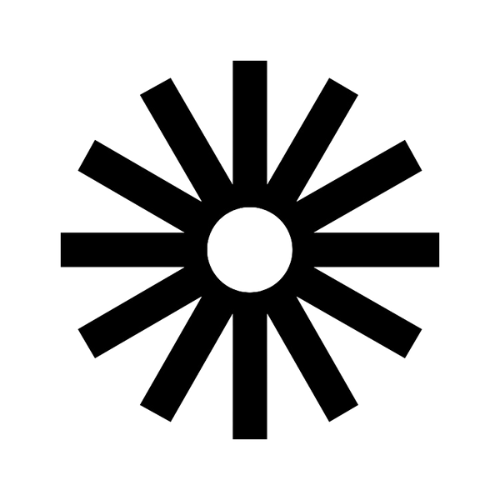#009 The Virtue of Selfishness, Interbeing + The Somatic No/Yes
Hey, friends. Welcome to the Easter/Equinox edition of The Now newsletter.
I’m just about to head out the door to attend a family BBQ, so I’ll keep this intro brief.
I just wanted to extend the invitation to share any mind-expanding ideas, curiosity-igniting links, or life-altering practices you come across.
I’m always interested to hear about what you’re discovering, learning, and practicing.
I really want The Now to feel like a cosy online community and not just me broadcasting my thoughts out into world.
The more we can share, collaborate, and learn from one another, the better.
Please feel free to reply to this email or hit me up on Twitter any time.
Thanks for being here,
— Jonathan
💡 One mind-expanding idea: The Virtue of Selfishness
I think the world would be a better place if people were more selfish.
Now, before you write me off as a madman and hit unsubscribe, consider this metaphor:
Imagine an abundant orchard, full of trees laden with the most incredible array of ripe fruit.
You’re sitting in the middle of the orchard vigilantly guarding a small pile of gnarled apples.
True selfishness wouldn’t be to find an even bigger pile of apples to guard more carefully.
Rather, it would be stop worrying about your small pile of apples and open yourself up to the abundance around you—the peaches, plums, figs, and avocados.
Sure, you might lose some of your precious apples. But how much more have you gained?
The reason selfishness has such a bad rap is because we’re not particularly good at practicing it.
A lot of what looks like self-interest is actually far from it.
Take the example of the rich man who keeps working overtime to accumulate more money.
This is the epitome of “selfish” behaviour—the relentless hoarding of more wealth.
But what if he hates his job? What if he’s sick? What if his wife’s having an affair and his children resent him? What if he never has time for his favourite hobbies?
Does his pursuit of riches still seem so selfish?
If he was truly selfish he would quit his job, save his marriage, reconnect with his children, and spend more time doing what brings him happiness—opening himself up to the abundance of life.
Those are the things that are truly in his self-interest and, yet, he’s sacrificing them for money.
You’ll be familiar with the saying: “You can’t pour from an empty cup.”
It means you can’t help others, you can’t be in service of life, you can’t create love, beauty or abundance in the world without taking care of yourself first.
Put another way: You can’t be selfless without first being selfish.
Practicing conscious selfishness requires you to be really honest about what’s in your self-interest.
What do you truly want? What makes you feel alive? What’s life asking of you? What fills your cup?
You should pursue these things whole-heartedly—let your selfishness guide you.
Suppressing your most selfish desires means withholding your greatest gifts from the world.
That’s true selfishness.
This might be hard to hear. We’ve been conditioned to reject selfishness. But I’m telling you, passive, sanctimonious self-sacrifice isn’t helping anybody.
If you give yourself permission to practice conscious selfishness, you might be surprised to discover that what’s best for you is best for all of us.
When you thrive, we all thrive.
🔗 One curiosity-igniting link: Interbeing
The concept of interbeing has had a significant impact on my worldview in recent years.
It may also provide helpful context for the selfishness re-frame above.
When you understand that we’re all interdependent, it’s easier to grasp that individual flourishing is necessary for collective flourishing.
This short animated film, narrated by philosopher Charles Eisenstein (his second appearance in this newsletter), captures the essence of interbeing beautifully.
Watch on YouTube
🔥 One life-altering practice: The Somatic Yes/No
I’ve been trying to listen more to the wisdom of my body, rather than solely relying on my mind, when making decisions lately.
I’ve come to realise that my “gut feeling” can be more trustworthy than my thoughts.
A simple practice for tuning in to your body is “The Somatic Yes or No”, which I first heard of from Kelly Wilde-Miller.
This might also help with practicing conscious selfishness.
How to do it:
- Whenever you’re faced with a decision or opportunity, take a moment to pause and notice how you’re feeling in your body
- If you feel your body “expanding” (openness, excitement, grounding), then it’s more of a YES.
- If you feel your body “contracting” (anxiety, overwhelm, fear), it’s more of a NO.
You might be wondering how you tell the difference between a clear NO and the natural fear or anxiety you might be feeling about a potential opportunity.
Kelly has some good suggestions about this here, but the more you do it, the clearer the feelings will become.
And here’s a bit of science, which may help explain why it’s a good idea to trust you “gut instinct”.
The vagus nerve, the main component of your parasympathetic nervous system, is made up of 20% efferent fibres, which send signals from the brain to the body (top-down), and 80% afferent fibres, which carry information from the body to the brain (bottom-up).
With all of that information flowing up from your body to your brain, maybe it’s worth paying closer attention to?
That’s it for this week. I hope you can explore the possibility of being a bit more selfish this week, in the nicest, most conscious way possible.
Thanks for reading,
— Jonathan
